Adding vampires to Caverns
- Read about the Caverns board game.
See also:
cards | tiles | pieces
| rules | & vampires
Not long after making the Caverns set shown on these pages, I was asked by its (then) young owner to add vampires.
So I added a vampire, and the mechanism for players (and non-Undead monsters) killed by vampires to be become vampiric too. It feels like quite a disruptive feature of the game, but if you’re playing enough Caverns to care then I suspect that finding out if it is becomes part of the fun.
I’ve belatedly added this page mostly for completeness (in 2025, because I was sent a photo of grown-ups disputing the vampire rules over that now-antique de-luxe Caverns set), but also — in the original spirit of do-it-yourself Caverns, which this is all about — to indicate how you might go about adding your own inventions to your own set.
Eight new cards
There five new cards in the Caverns pack (the vampire monster itself, some garlic, a book, and two holy waters), and three new Quest cards (to enable some of those new items to be win-criteria for players).
There was no new Character card, but there could have been (a vampire hunter in the style of van Helsig, maybe?).
Vampire
restless & Undead
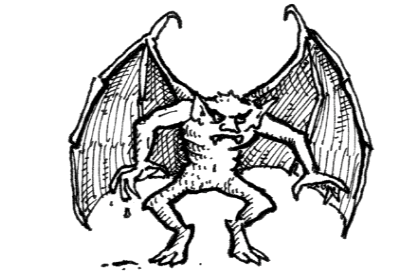
Cannot be turned to stone
Cannot be bribed with food
Any living creature killed by a vampire becomes a vampire on a roll of 1, 2, or 3
| combat | magic | affinity |
|---|---|---|
| 5 | 1 | 2 |
HEAD of GARLIC
Bulbs of Allium sativum
Holds attacking vampires at bay.
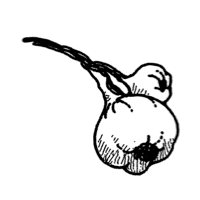
Any vampire attacking the holder must first roll
4, 5 or 6
or else the attack is repulsed
| value | ||
|---|---|---|
| 0 |
The Vampire Hunter’s BOOK of REDEMPTION
Esoteric Book
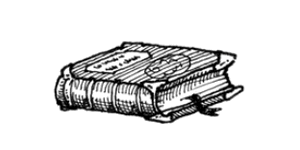
If this book is opened in the Holy Place, all vampires are weakened for the rest of the game: Every time a Vampire rolls a die, roll another and choose the least favourite result.
| magic | ||
|---|---|---|
| * |
Small Vial of HOLY WATER
Blessed Liquid
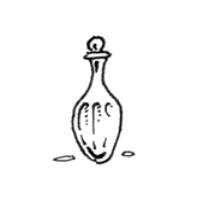
+1 in Combat with Undead
Has no effect when fighting with the living
| combat | ||
|---|---|---|
| +1 |
Large Bottle of HOLY WATER
Blessed Liquid
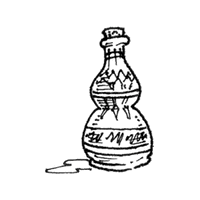
+2 in Combat with Undead
Has no effect when fighting with the living
| combat | ||
|---|---|---|
| +2 |
Your Quest
the Vampire Hunter’s
BOOK
of REDEMPTION
The first player to get to a flight of stairs
with their Quest is the winner.
Keep
your Quest card secret until the end!
Your Quest
some
HOLY
WATER
The first player to get to a flight of stairs
with their Quest is the winner.
Keep
your Quest card secret until the end!
Your Quest
some
HOLY
WATER
The first player to get to a flight of stairs
with their Quest is the winner.
Keep
your Quest card secret until the end!
Changes to tiles too?
If you want your cavern tiles to have precisely the same number of red spots as there are Caverns cards to discover, you’ll need to add exactly 5 new red spots to your tiles. (You don’t have to: Caverns doesn’t need to guarantee that every monster and item is discoverable in any given play-through.) If so, this may mean you don’t just add spots, but also some new tiles bearing the caverns in which these spots are located. If you do that, then perhaps you could add a few more passage tiles to service them too. And once you’ve done that, maybe you could add a new Passage Encounter card too (another clove of garlic, perhaps? Some people think you can never have too much garlic).
Vampire marker cards
You need a way to keep track of which players or monsters are vampires, since in effect this is a state that isn’t indicated on the card that bears the killed-but-not-dead individual’s statistics or attributes. You could do this with any kind of token, but making cards seems in keeping with the existing game, provided you make the cards clearly different (for example, printed on red stock, or with different backs) from all others. You don’t want these tokens to get mixed in with any of the other cards before the game has begun. I used black-and-white backs with horrific splotches of red blood splashed onto them (unlike cards that are keeping their identity secret, these don’t need to be uniform on the back).
In any game, you might need lots of these, or you might need none: I made around eight.
VAMPIRE
Killed by a Vampire:
now Undead
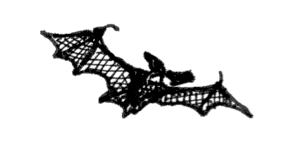
Can pass along narrow passages or across deep water (by turning into a bat).
Any living creature killed by a vampire becomes a vampire on a roll of 1, 2 or 3
| combat | ||
|---|---|---|
| +1 |
VAMPIRE
Killed by a Vampire:
now Undead

Can pass along narrow passages or across deep water (by turning into a bat).
Any living creature killed by a vampire becomes a vampire on a roll of 1, 2 or 3
| combat | ||
|---|---|---|
| +1 |
VAMPIRE
Killed by a Vampire:
now Undead

Can pass along narrow passages or across deep water (by turning into a bat).
Any living creature killed by a vampire becomes a vampire on a roll of 1, 2 or 3
| combat | ||
|---|---|---|
| +1 |
VAMPIRE
Killed by a Vampire:
now Undead

Can pass along narrow passages or across deep water (by turning into a bat).
Any living creature killed by a vampire becomes a vampire on a roll of 1, 2 or 3
| combat | ||
|---|---|---|
| +1 |
VAMPIRE
Killed by a Vampire:
now Undead

Can pass along narrow passages or across deep water (by turning into a bat).
Any living creature killed by a vampire becomes a vampire on a roll of 1, 2 or 3
| combat | ||
|---|---|---|
| +1 |
VAMPIRE
Killed by a Vampire:
now Undead

Can pass along narrow passages or across deep water (by turning into a bat).
Any living creature killed by a vampire becomes a vampire on a roll of 1, 2 or 3
| combat | ||
|---|---|---|
| +1 |
VAMPIRE
Killed by a Vampire:
now Undead

Can pass along narrow passages or across deep water (by turning into a bat).
Any living creature killed by a vampire becomes a vampire on a roll of 1, 2 or 3
| combat | ||
|---|---|---|
| +1 |
VAMPIRE
Killed by a Vampire:
now Undead

Can pass along narrow passages or across deep water (by turning into a bat).
Any living creature killed by a vampire becomes a vampire on a roll of 1, 2 or 3
| combat | ||
|---|---|---|
| +1 |
Other things
Maybe vampires should not be able to use the All-seeing Mirror (it’s one of the Passage Encounter cards). Or maybe vampires can use magic mirrors, it’s just they don’t have reflections in them. It depends how you think magic mirrors work, I suppose.
The illustration of the vampire itself was included in the scrapbook a good seven years before I got around to adding this page that includes the card it was from. I coloured that illustration for the scrapbook, and foolishly decided to show the vampire casting a shadow. It’s been wrong so long, I’ve decided not to fix it.
An unrelated Cloak of Invisibility
For reasons lost in time — but almost certainly because one of the original young players had simply asked for it — there’s one more extra card in the “vampire expansion” that has nothing to do with vampires. But here it is anyway: an invisibility cloak. The game already has a mechanism for invisibility (see the Invisibility magic spell — one reason why the tiles are numbered is to record the position of invisible players or monsters in the absence of their figure, to prevent disputes and/or allegations of cheating). So the absence of any magic items that enable it is perhaps surprising. Clearly someone thought so, and this presumably is the result.
Note that, unexpectedly (but maybe for reasons of game balance; I don’t remember), the card doesn’t simply bestow invisibility. Instead it lets its wearer cast the Invisibility spell, which isn’t quite the same thing. Casting the spell implies rolling a die to determine success and, according to the spell-book, becoming invisible usually only works about 50% of the time.
CLOAK of INVISIBILITY
Magic Cloak
Allows wearer to cast an Invisibility Spell
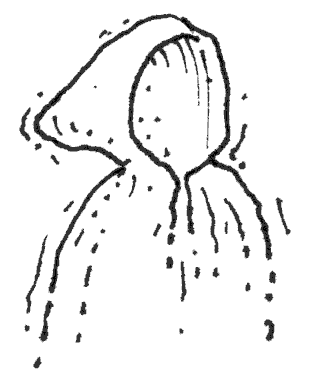
Add your MAGIC score (and bonuses) to the die roll.
| magic | ||
|---|---|---|
| * |
License
This work is licensed under a
Creative Commons BY-NC license
(zip files containing all the card illustrations
and tiles (uh... except the ones on this
“& vampires” page, they’re not in the zips, sorry) are available for
download as a jumping-off point for you to create your own version). It was
inspired over twenty-five years ago by two original games — The
Sorcerer’s Cave and The Mystic Wood. Please read about the game’s origins to understand how
it came about.
